Physical Address
304 North Cardinal St.
Dorchester Center, MA 02124
Physical Address
304 North Cardinal St.
Dorchester Center, MA 02124
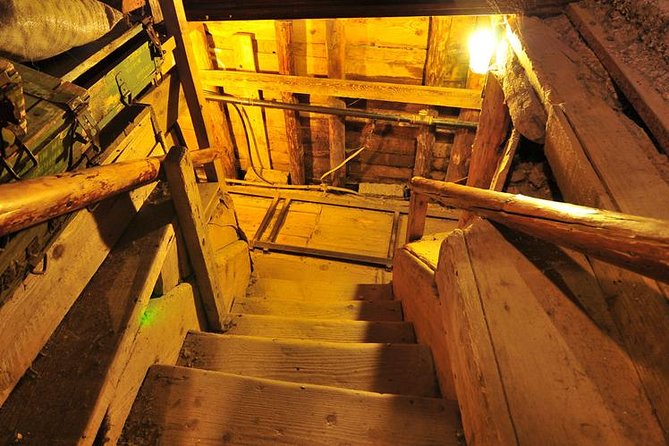
This Sarajevo war tour takes visitors on a poignant journey through the harrowing history of the Yugoslav Wars. Guided by locals with firsthand experiences, the tour explores significant sites like Sniper Alley and the famous Tunnel of Hope, offering valuable insights into the city’s resilience during the Siege of Sarajevo. The Tunnel Museum deepens understanding of the extraordinary measures Sarajevo’s citizens took to survive these tumultuous times. With its immersive approach, the tour provides a thought-provoking look at a complex and often overlooked chapter of European history.
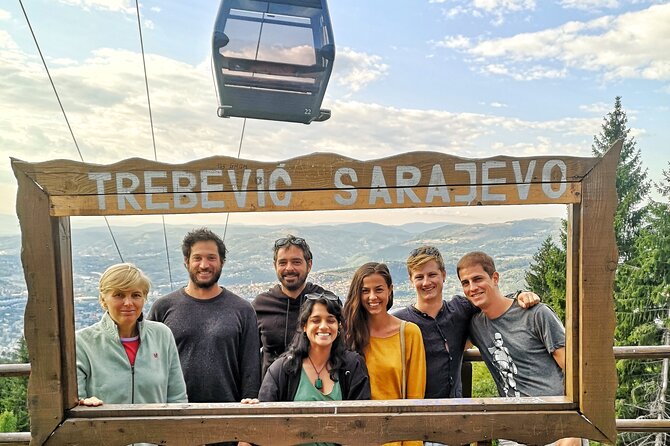
You can also read our reviews of more tours and experiences nearby.

The Sarajevo War Tour focuses on the Yugoslav Wars and the Siege of Sarajevo, providing visitors with an in-depth exploration of this tumultuous period in the city’s history.
The tour highlights significant landmarks, including Sniper Alley, the War Tunnel, the Yellow Fortress, the Olympic Bobsleigh Track, the Defenders’ Cemetery, the Olympic Stadium, and the Mausoleum of Gavrilo Princip.
The tour lasts four hours and accommodates a maximum of 15 travelers. Priced from $31.90 per person, the tour includes a professional local guide with personal war experiences, hotel pick-up and drop-off, and an air-conditioned vehicle.
The Sarajevo War Tour includes a professional local guide with personal war experiences, hotel pick-up and drop-off for those staying outside the old town, and an air-conditioned vehicle with fuel surcharge and bottled water.
The tour also provides:
Food and beverages, except for the complimentary bottled water, aren’t included in the tour.
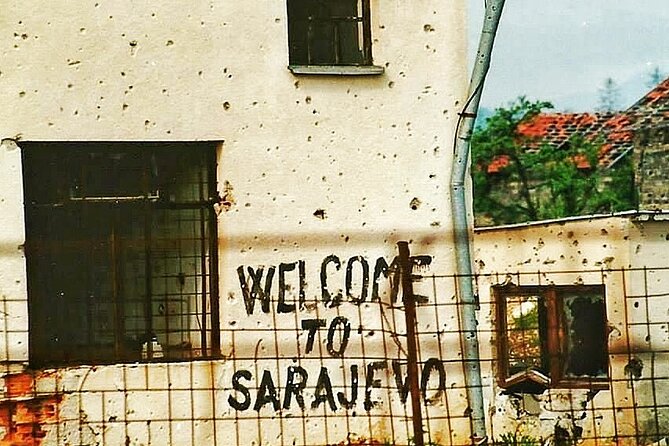
The Sarajevo War Tour‘s meeting point is at Meet Bosnia Tours, located at Gazi Husrev Begova 75 in Sarajevo.
The tour is accessible via public transportation. Stroller and infant seats are available, though the tour isn’t wheelchair accessible. This allows a diverse group of travelers to participate in the experience.
The meeting point’s central location and accessibility make it convenient for guests, ensuring a smooth start to the tour’s exploration of Sarajevo’s wartime history and landmarks.
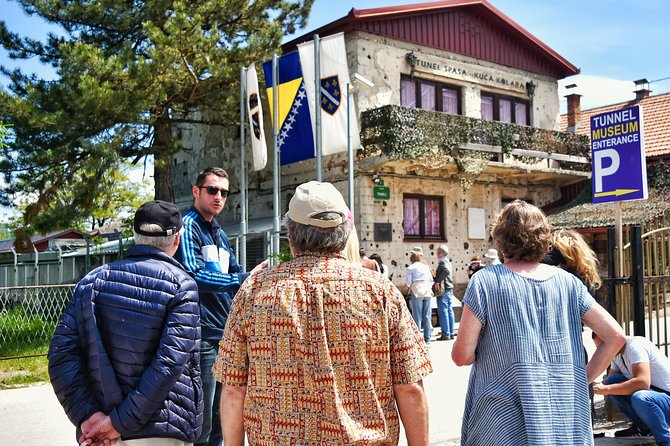
With a near-perfect 99% recommendation rate and a Badge of Excellence, the Sarajevo War Tour has earned glowing reviews from nearly 1,000 travelers.
Guests praise the knowledgeable and passionate local guides who share personal wartime experiences, creating an emotional yet educational journey.
Key highlights include:
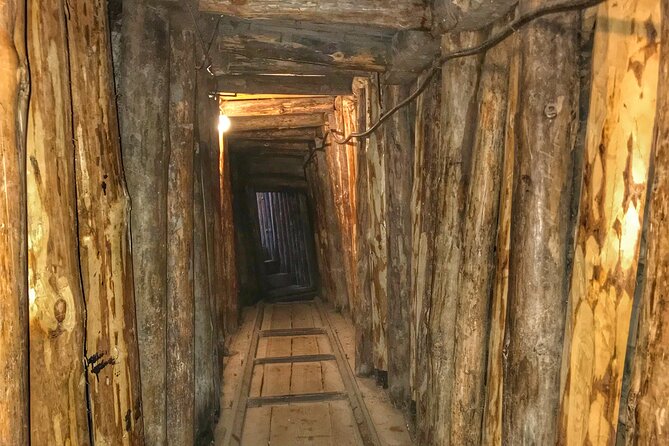
Although the Siege of Sarajevo remains one of the most harrowing chapters in the Yugoslav Wars, the Sarajevo War Tour guides visitors through the city’s resilience in the face of immense hardship.
The tour explores Sniper Alley, where civilians braved relentless gunfire to access basic necessities. At the War Tunnel Museum, guests learn about the ‘Tunnel of Hope’, a lifeline that connected the besieged city to the outside world.
Guides share personal stories, bringing the history to life and highlighting Sarajevo’s unwavering spirit. Amidst the sobering reminders of the past, the tour showcases the city’s determination to rebuild and recover.

Visitors to the Sarajevo War Tour can explore the compelling history of the Tunnel of Hope, a crucial lifeline for the besieged city during the Yugoslav Wars.
The tunnel, dug by hand, connected the city to the outside world when it was surrounded by Serbian forces. Tour guests can visit the Tunnel Museum and learn about:
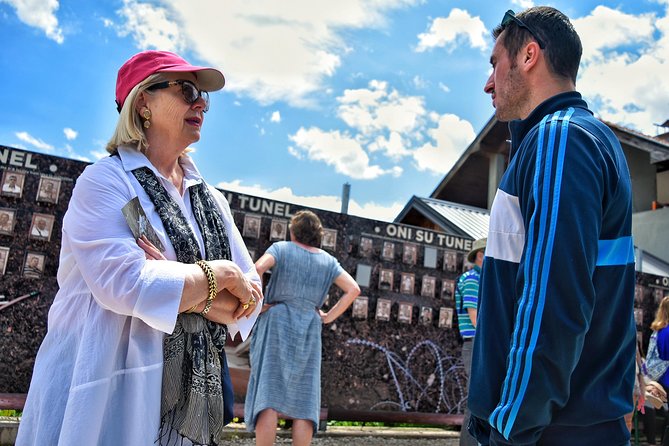
Despite the immense trauma and destruction wrought by the Yugoslav Wars, the people of Sarajevo demonstrate an unwavering resilience that permeates the Sarajevo War Tour.
Guides share personal stories of survival, emphasizing the ingenuity and determination of citizens who endured the Siege of Sarajevo. Visitors gain profound insights into the human spirit, witnessing how the community rallied together to support one another.
Whether exploring the War Tunnel or strolling Sniper Alley, the tour highlights Sarajevo’s unbreakable spirit, inspiring awe and respect. Guests leave with a deeper understanding of the city’s history and an appreciation for its courageous people.
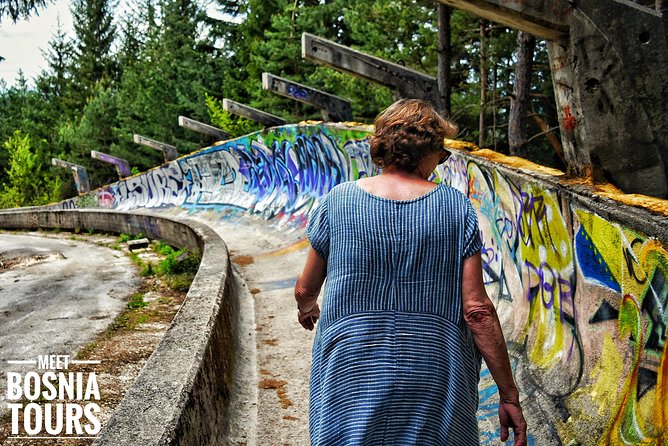
For those interested in further exploring the history and impact of the Yugoslav Wars in Sarajevo, the tour guides recommend visiting two additional sites: Galerija 11/07/95 and the Museum of Crime Against Humanity and Genocide.
The Galerija 11/07/95 is an art gallery that features powerful works depicting the Srebrenica genocide. The Museum of Crime Against Humanity and Genocide provides a comprehensive look at the atrocities committed during the wars.
These sites offer a deeper, more immersive understanding of the conflict and its lasting effects on the people of Sarajevo.
Additional recommendations include:
We've Also reviewed these nearby tours and experiences
The personal war experiences of the tour guides cannot be independently verified, as they are subjective accounts. The details provided suggest these experiences are integral to the tour’s educational and emotional impact, though their accuracy remains unconfirmed.
Visitors can bring their own food and drinks on the tour, except for bottled water which is provided. The tour doesn’t include any meals, so bringing snacks or lunch is allowed.
There are no specific dress code requirements for the tour, though visitors should dress comfortably as there’s moderate walking. Food and drinks, aside from the provided bottled water, aren’t permitted during the tour.
The tour can be customized or tailored to individual interests, as the guides encourage questions to enhance understanding of the history and provide opportunities for personal interaction to cater to each traveler’s needs and preferences.
The tour offers free cancellation up to 24 hours before the experience. Refund policies are clear and flexible, allowing guests to adjust their plans without penalty if needed.
The "Fall of Yugoslavia, Sarajevo War Tour with Tunnel of Hope Museum and Frontlines" offers a powerful and poignant exploration of Sarajevo’s harrowing past. Guided by locals, participants witness the resilience of the city’s citizens and gain deep insights into the impact of the Yugoslav Wars. A visit to the Tunnel Museum further illuminates the city’s courageous struggle for survival during this tumultuous period.